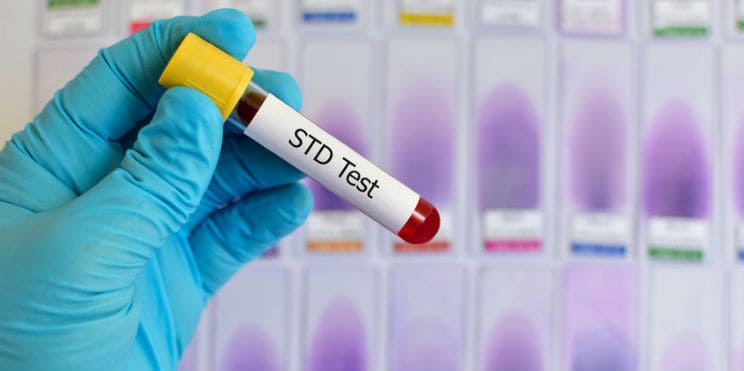The Basics of STD Screenings

STD screening is a topic most people shy away from, but it’s necessary for sexually active persons. You would have to get STD screenings at some point, but the tests you would carry out would depend on your risk factors.
Although STD screening is essential, you may not need some tests. Knowing when to get tested and the STD test you need would require understanding STDS. This knowledge is also important to understand how to get treatment if you get diagnosed with an STD.
Table of Contents
ToggleWhat is the difference between STIs and STDs?
Sexually Transmitted Infections (STIs) are sometimes referred to as STDs (Sexually Transmitted Diseases). Most health providers use the term STI because there’s less stigma associated with infection.
You can have an STI without symptoms, and it would develop into a disease. Without symptoms, the only way to make an appointment with your healthcare provider to diagnose an STI is to have a screening.
What are the most common STDs?
There are several STDs, but the following are more common;
Human Papillomavirus (HPV)
It is the most common STD in most countries. HPV causes genital warts, but in some cases, infected persons do not develop lesions. HPV is easily transmitted during sexual intercourse and skin-to-skin contact.
If the lesions are present, it’s easy to diagnose HPV through an inspection, but you may need additional testing, a colposcopy or biopsy in women.
Chlamydia and gonorrhoea
These STIs are very common and usually screened at the same time. It’s easy to miss these infections, especially in women, because they do not show symptoms in most cases. You can get these STIs through anal, oral, or genital contact with an infected person.
Syphilis
Syphilis is a bacterial infection transmitted through genital, anal or oral contact with someone who has an infectious sore during the initial stages of the infection.
Herpes
Several strains of HPV are available, but two common strains of HPV affect people. HPV type 1 causes oral herpes, commonly called cold sores, and HPV type 2 causes genital herpes; recent research shows that type 1 also causes genital infections.
Some people get infected with either HPV type 1 or 2 but do not show symptoms, while others have outbreaks with painful sores around their mouth, anus or genitals. HPV can be transmitted even when symptoms are not present because an infected person is still contagious without lesions. Taking precautions only when lesions are present is not advisable.
HIV
You can contract HIV through contact with infected blood (sharing needles with an infected person) or sexual contact (unprotected vaginal or anal sex). Although you can contract HIV through contact with other contaminated body fluids, it rarely happens.
Hepatitis C
Hepatitis C is a viral infection transmitted through contact with exposed skin or blood. The risk of hepatitis C transmission through having sex with an infected person is about 1 in 190,000 sexual occurrences. It can cause liver cancer and chronic liver disease.
Hepatitis B
It is also a viral infection transmitted through contact with contaminated blood and other body fluids. Hepatitis B infection can lead to liver disease.
What is STD screenings
STD screening involves checking for infection even with no symptoms. Like colon cancer screening and mammogram, STD screening is a proactive approach for preventing certain health condition.
Testing for STIs is important, depending on your risk factors. However, no recommended testing time is available, and your testing recommendation depends on your lifestyle.
Why is STD Screening important?
Testing for STDs helps protect you and your partner. Some STDs show no symptoms, so most people have STDs but remain unaware. Untreated STDs have long-term effects like infertility and organ damages, so getting tested would alert you if you have an infection to get the necessary treatment.
What types of tests are available?
Several tests are available for detecting STDs, but no single test can diagnose STDs. Most STD tests require a blood or urine sample or a swab of the affected area. Home tests for STDs are available, like the HIV rapid test.
When should I get STD screenings test, and which test do I need?
Some people think they need to test for all STDs when they visit a clinic for testing. It’s essential to see your healthcare provider and discuss your lifestyle and risk factors to know the STD tests your need.
There are some downsides to testing for all STDs, and the tests are usually expensive. In some cases, the test may give a false positive, which would lead to unnecessary anxiety.
The following instances may require STD testing;
You are sexually active
Any sexually active person needs to get screened for STD even if you use protection and have only one partner. HIV testing is essential for everyone, while chlamydia and gonorrhoea testing are necessary for women.
Women can have these infections and not show symptoms. You can get tested less frequently if you are in a monogamous relationship and practising safe sex.
You have unprotected sex
If you want to or have had unprotected oral, anal or vaginal sex with a new partner, ensure you get tested. Your test would be more reliable if you have them within this timeframe.;
- One week to three months for syphilis
- Two weeks for chlamydia and gonorrhoea
- Six weeks to three months for hepatitis B and C, HIV
Experts do not recommend STD screening for herpes for most people except they have an outbreak.
You are in a risky relationship
If your partner has a long-term or chronic infection like HIV, hepatitis B or C, you need to get tested frequently. If you are not sure your partner is monogamous or in an open relationship, you also need to get STD screening more regularly. This should be every six months or depending on your risk factors.
You participate in high-risk sexual activities
High-risk sexual activities include having multiple sex partners, having sex with anonymous partners or a sex worker. Using intravenous drug is also a risk factor that requires frequent STD testing.
You had a past infection
People who have had an infection in the past are more likely to get re-infected, so ensure you get screened three months after treatment if you are sexually active.
You are a baby boomer
Most baby boomers (born between 1945 – 1965) may have gotten hepatitis C and did not know because the virus was not discovered then. Since hepatitis C does not show symptoms in some cases, baby boomers need to get tests for hepatitis B.
You have symptoms
If you experience STD symptoms, visit a sexual health clinic in London to discuss your symptoms and get tested. Your history and symptoms would determine the right tests you need.
If you want to see an experienced doctor to discuss your sexual health and testing needs, visit London GP Clinic today or call 020 70434318 to schedule an appointment today.
Recommended For You
Spread the love Sinus infections, or sinusitis, are a common ailment, particularly during the colder months in the UK. They
Spread the love Let’s face it: a perfectly aligned smile can boost your confidence and make you feel more comfortable
Spread the love Oral health is an integral part of overall well-being. Healthy teeth and gums not only contribute to





